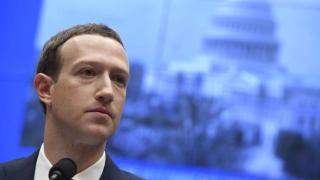Just like former president Donald Trump, who committed his impeachable high crimes in broad daylight, Facebook, led by Mark Zuckerberg, mugged its 13 million users in Australia not in an unlit back alley but in full view of the whole continent.
If Facebook was trying to shut down a mortal threat here to its business model from metastasising among Big Tech regulators around the world, it made a huge miscalculation. Facebook’s atrocity in Australia became – thanks to the social network’s spectacular success in making a global platform that instantly interconnects everybody everywhere – big global news.
Notwithstanding its exceptional efforts to bring fair play between Facebook and media companies, Australia does not have the power to break up Facebook. The European Union doesn’t either. But the United States does.
Notwithstanding its exceptional efforts to bring fair play between Facebook and media companies, Australia does not have the power to break up Facebook. The European Union doesn’t either. But the United States does. And nowhere is this more important than in Washington, which is absorbing what happened here last week and why.
Since President Teddy Roosevelt’s extraordinarily successful crusades a century ago to break up big monopoly trusts in oil, railroads, tobacco, and meat packing, a fundamental tenet of governance in a democracy is that no company or business interest is more powerful than the rule of law – that corporate power can be regulated to serve the public interest. In US telecoms and tech, AT&T and Microsoft succumbed to this imperative of how capitalism must operate. This democratic value has been exported to other developed countries, such as Australia, which has brought competition rules to bear across the economy, including against the biggest domestic tech companies, such as Telstra.
The impunity of Facebook’s abusive exercise of raw commercial power affecting an entire country has become a public policy point of reference.
Facebook’s arrogance in closing down news feeds has captured Washington’s attention – because normally only dictators do that – and in a way that transcends the specifics of requiring Facebook to pay for news content, it is using for free. That specific issue may not be transferable to the US market – even though Facebook fears it will be.
President Joe Biden’s new nominee for Attorney-General, Merrick Garland, will soon assume his post. A prime issue is whether he will continue the antitrust suits filed by the Trump Justice Department against Facebook and Google to curb their dominance. This is one issue that has huge bipartisan support: from Republicans, because Big Tech is seen as pro-left, and from Democrats, who fear Big Tech’s rampant concentration of power.
Facebook’s heavy-handed tactics here will further provoke the much heavier hand of antitrust enforcement in Washington, with far graver remedies than simply paying some money for free news content they monetise rapaciously.




